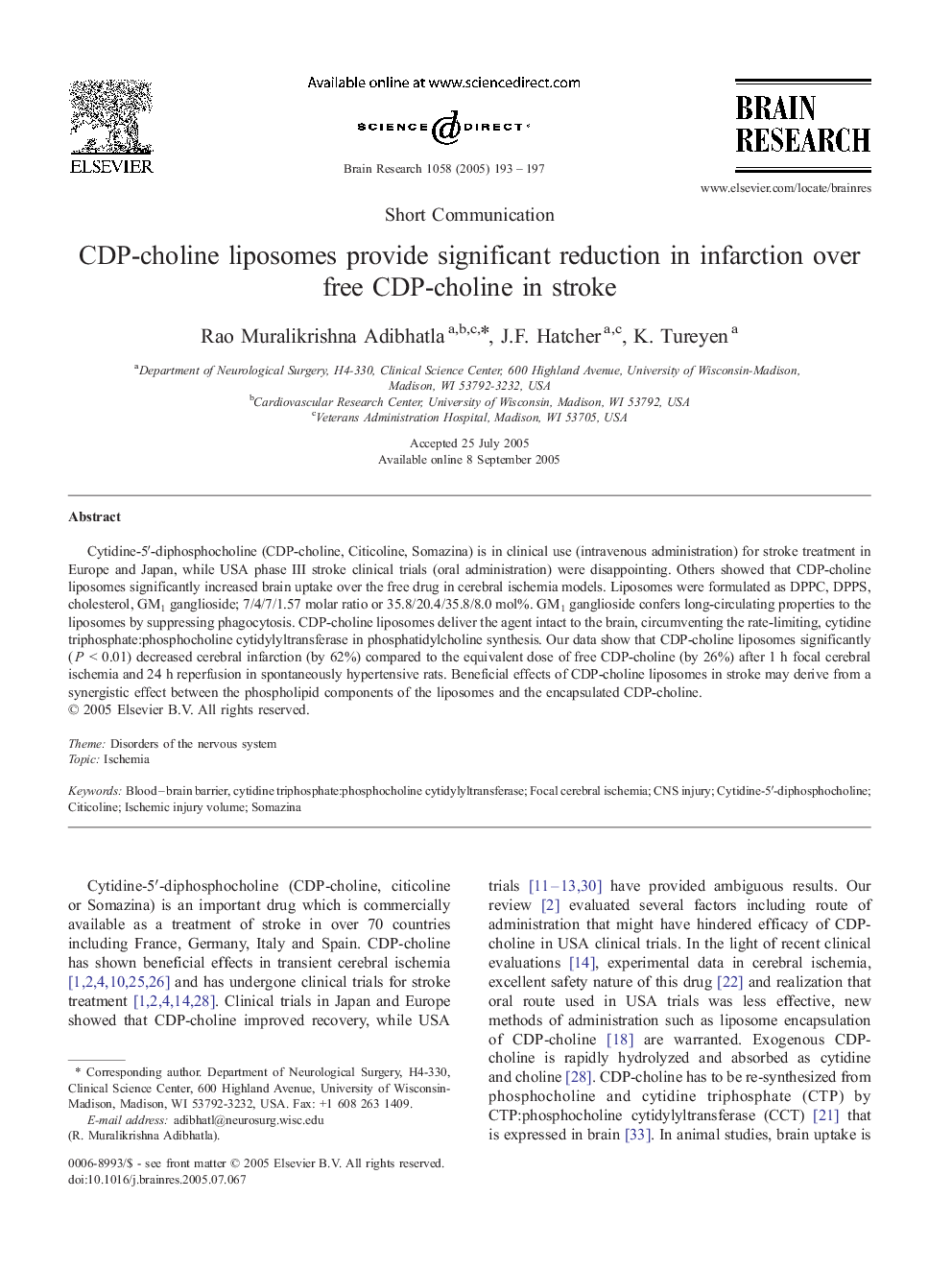| Article ID | Journal | Published Year | Pages | File Type |
|---|---|---|---|---|
| 9415951 | Brain Research | 2005 | 5 Pages |
Abstract
Cytidine-5â²-diphosphocholine (CDP-choline, Citicoline, Somazina) is in clinical use (intravenous administration) for stroke treatment in Europe and Japan, while USA phase III stroke clinical trials (oral administration) were disappointing. Others showed that CDP-choline liposomes significantly increased brain uptake over the free drug in cerebral ischemia models. Liposomes were formulated as DPPC, DPPS, cholesterol, GM1 ganglioside; 7/4/7/1.57 molar ratio or 35.8/20.4/35.8/8.0 mol%. GM1 ganglioside confers long-circulating properties to the liposomes by suppressing phagocytosis. CDP-choline liposomes deliver the agent intact to the brain, circumventing the rate-limiting, cytidine triphosphate:phosphocholine cytidylyltransferase in phosphatidylcholine synthesis. Our data show that CDP-choline liposomes significantly (PÂ <Â 0.01) decreased cerebral infarction (by 62%) compared to the equivalent dose of free CDP-choline (by 26%) after 1 h focal cerebral ischemia and 24 h reperfusion in spontaneously hypertensive rats. Beneficial effects of CDP-choline liposomes in stroke may derive from a synergistic effect between the phospholipid components of the liposomes and the encapsulated CDP-choline.
Related Topics
Life Sciences
Neuroscience
Neuroscience (General)
Authors
Rao Muralikrishna Adibhatla, J.F. Hatcher, K. Tureyen,
